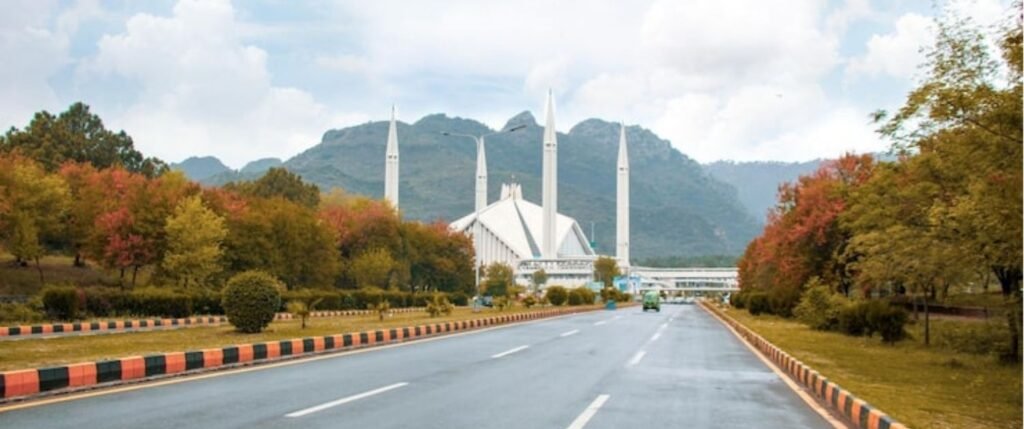Islamabad, the capital city of Pakistan, is not only known for its scenic beauty and modern infrastructure but also for being one of the country’s leading academic hubs.
The city is home to some of the most prestigious universities in Pakistan, attracting thousands of students from across the nation and abroad.
Whether you are interested in engineering, medicine, social sciences, arts, architecture, or fashion design, Islamabad offers diverse opportunities for higher education.
This comprehensive guide covers everything you need to know about universities in Islamabad:
- Their history
- Types of universities (public, private, specialized)
- Admission process
- Tuition fees
- Scholarships
- Living costs
- Pros & cons of studying in Islamabad
History of Universities in Islamabad
Islamabad’s journey as an academic hub began in the late 1960s with the establishment of Quaid-i-Azam University (QAU) in 1967.
Originally called the University of Islamabad, it was primarily focused on postgraduate education. In 1976, it was renamed to honor Pakistan’s founder, Muhammad Ali Jinnah.
In the 1980s and 1990s, Pakistan’s higher education sector expanded, and Islamabad became the center of new institutions such as:
- International Islamic University Islamabad (IIUI) – established in 1980 to promote Islamic learning and modern sciences.
- National University of Sciences and Technology (NUST) – founded in 1991, now ranked among the top engineering universities in Asia.
- Pakistan Institute of Engineering and Applied Sciences (PIEAS) – specialized in nuclear sciences and advanced engineering.
The 2000s saw the rise of COMSATS University Islamabad (CUI), Air University, Bahria University, and Riphah International University, making Islamabad a truly diverse educational hub.
Today, the city has more than 20 recognized universities, offering programs from natural sciences and technology to humanities, law, arts, and fashion.
Universities in Islamabad
Islamabad hosts a wide range of public and private universities that are recognized nationally and internationally. Many of them are ranked by QS World University Rankings and Times Higher Education.
List of Well-Known Universities in Islamabad
- Quaid-i-Azam University (QAU)
- National University of Sciences and Technology (NUST)
- COMSATS University Islamabad (CUI)
- International Islamic University Islamabad (IIUI)
- Air University
- Bahria University
- Riphah International University
- National University of Modern Languages (NUML)
- Pakistan Institute of Engineering and Applied Sciences (PIEAS)
- Federal Urdu University of Arts, Sciences & Technology
- Institute of Space Technology (IST)
Top 10 Universities in Islamabad (2026)
Based on academic excellence, research output, faculty strength, and student satisfaction, the top universities in Islamabad are:
- Quaid-i-Azam University (QAU)
- National University of Sciences and Technology (NUST)
- COMSATS University Islamabad (CUI)
- Pakistan Institute of Engineering and Applied Sciences (PIEAS)
- International Islamic University Islamabad (IIUI)
- Air University
- Bahria University
- Riphah International University
- National University of Modern Languages (NUML)
- Institute of Space Technology (IST)
Types of Universities in Islamabad
Government Universities
Affordable and highly reputed, funded by the government:
- Quaid-i-Azam University (QAU)
- NUST
- IIUI
- NUML
- Federal Urdu University
Private Universities
Known for modern infrastructure, strong industry ties, and flexible programs:
- Bahria University
- Riphah International University
- Air University
- SZABIST Islamabad Campus
- Preston University
Specialized Universities
- Engineering: NUST, PIEAS, IST, Air University
- Medical: Shifa Tameer-e-Millat University, Riphah Medical College, Federal Medical & Dental College
- Fashion & Design: Pakistan Institute of Fashion and Design (Islamabad Campus), Iqra University
- Architecture: NUST (SADA), COMSATS Architecture Department
- Arts: National College of Arts (Islamabad Campus), COMSATS, Iqra University
Admission Process in Islamabad Universities
The admission process varies across institutions, but generally includes:
- Eligibility
- Intermediate / A-levels for undergraduate programs
- Bachelor’s degree for Master’s programs
- MS/MPhil for PhD programs
- Entrance Exams
- NUST, PIEAS, Air University require their own entrance tests.
- Others accept HEC’s LAT (Law Admission Test), GAT (Graduate Assessment Test), or MDCAT (Medical) depending on the program.
- Equivalency
- Students with foreign qualifications must obtain IBCC/HEC equivalence certificates.
- Application Procedure
- Apply online through university portals.
- Submit documents, photographs, and pay application fee (PKR 1,500–5,000).
- Admission Cycles
- Most universities have two intakes per year – Spring (Jan/Feb) and Fall (Aug/Sep).
Tuition Fees in Islamabad Universities
| Type of University | Average Tuition Fees (PKR) | Example Universities |
|---|---|---|
| Public Universities | 40,000 – 80,000 / semester | QAU, NUML, IIUI |
| Private Universities | 120,000 – 250,000 / semester | Bahria, Riphah, Air |
| Engineering & IT | 100,000 – 180,000 / semester | NUST, COMSATS |
| Medical Universities | 1,000,000 – 1,500,000 / year | Shifa, Riphah Medical |
| Arts & Design | 80,000 – 150,000 / semester | NCA, COMSATS (Art Dept.) |
Scholarships & Financial Aid
Students in Islamabad can benefit from multiple scholarship opportunities:
- Merit Scholarships: Offered to top performers in each semester.
- Need-Based Aid: Available in QAU, NUST, Bahria, and other universities.
- HEC Scholarships: Pakistan government-funded programs like Ehsaas Scholarship, Overseas PhD Scholarships, and HEC Indigenous Scholarships.
- International Scholarships: IIUI and NUML offer special seats for foreign students with partial fee waivers.
- Corporate Scholarships: Sponsored by industries for IT, engineering, and management students.
Living Costs in Islamabad for Students
Islamabad offers a comfortable lifestyle compared to other cities, but costs vary depending on accommodation choices.
| Expense Category | Cost Range (PKR / month) |
|---|---|
| Hostel / Rent | 8,000 – 20,000 |
| Food & Groceries | 10,000 – 20,000 |
| Transportation | 3,000 – 8,000 |
| Books & Internet | 5,000 – 10,000 |
| Total Estimated Budget | 40,000 – 60,000 |
Students living in hostels usually spend less, while those renting private apartments may spend more.
Pros & Cons of Studying in Islamabad
Pros
1. Home to top-ranked universities (QAU, NUST, PIEAS).
2. Affordable options in public universities.
3. Wide variety of disciplines.
4. Safe, green, and modern city.
5. Opportunities for research and international collaboration.
Cons
1. Admission to top universities is highly competitive.
2. Private universities can be expensive.
3. Limited hostel facilities in some institutions.
4. Paperwork for international students may take time.
Conclusion:
Islamabad stands out as one of the best educational hubs in Pakistan, offering both public and private universities across a wide range of disciplines. Whether you’re aiming for engineering at NUST, social sciences at QAU, medicine at Shifa, or art at NCA, the city has something for everyone.
With affordable public options, globally ranked institutions, and a safe environment, Islamabad is the ideal destination for students seeking high-quality education.
FAQs:
Which is the No. 1 university in Islamabad?
Quaid-i-Azam University (QAU) and NUST are often ranked as the top two.
Are there international universities in Islamabad?
No foreign campuses, but universities like IIUI and NUML have global collaborations and accept international students.
What are the best medical universities in Islamabad?
Shifa Tameer-e-Millat University, Riphah International Medical College, and Federal Medical & Dental College.
Are there affordable universities in Islamabad?
Yes, QAU, IIUI, and NUML provide low-cost, high-quality education.
Can international students study in Islamabad?
Yes, with equivalency certificates and student visas. IIUI, NUML, and QAU are popular choices.


